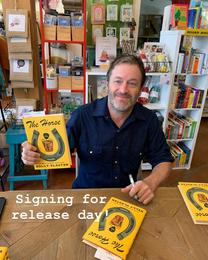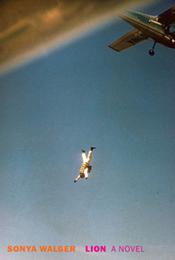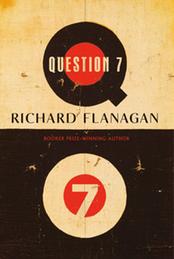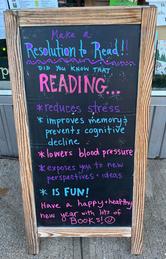 Time is running out but if you want to purchase a signed/personalized copy of any of Willy's books check out Two Rivers Books [Portland, Ore.]. It's the gem of St. Johns and remember if you support an independent bookstore you'll probably get into heaven first!
Time is running out but if you want to purchase a signed/personalized copy of any of Willy's books check out Two Rivers Books [Portland, Ore.]. It's the gem of St. Johns and remember if you support an independent bookstore you'll probably get into heaven first!
--Willy Vlautin, author most recently of The Horse, in a December social media post
In a lovely end-of-year column for the Washington Post ("A long bookish marriage is still too short"), Ron Charles observed: "Books accumulate like stray cats that have found someone with a soft heart. Since 2005, we've lived in a small house in Bethesda, Maryland, that now weighs approximately three times what it weighed when we moved in. (I have serious concerns about the integrity of the second floor.) I used to think of the swelling piles of books in every room as literary stalagmites, but now that they've merged, they're more like a great coral reef of literature."
We have just such a literary coral reef in our house, too.
For book people, the turn of the year is often a time for taking stock of favorite reads from the previous 12 months and/or setting goals for the next 12--the proverbial ghosts of reading past and reading future.
There is also, of course, the ghost of reading present, and for me that particular spirit resides in the last 10 days or so of each year, when Shelf Awareness takes its annual holiday break. So what does a professional reader do with all that downtime?
You got it. In my case, I finished three very different and amazing books: The Horse by Willy Vlautin (Harper), Lion by Sonya Walger (NYRB, February), and Richard Flanagan's 2023 Booker-winning Question 7 (Knopf). As an early year gift, I'll offer you a taste of each, lines that nudged me to pick up a pen and bracket:
 Vlautin:
Vlautin:
"And why are all your songs sad? Every single one of them."
He shrugged. "They've always been that way. Even when I was a kid, I wrote them like that. I don't know why exactly, but that's the way they come out."
Walger:
I read and read and read. I cannot read enough. There are not enough books for my hunger, I cannot keep up with myself. I read beyond my years, deep into the years ahead. I am unreachable in my book. I am alone and in company. No one asks you what you're doing with a book in your hand. No one asks you if you're okay. No one asks you anything at all.
 Flanagan:
Flanagan:
Yet words exist to grasp the world and if every day afresh the world eludes them, every tomorrow they are condemned to begin their crazy dance again: words to anchor, the world to fly; words to say it is so, the world to say it is not. And so they tango eternally, words and the world, writers no more than dancing shoes sliding between the dancer and the dance floor.
As 2024 was winding down, I noticed several articles trumpeting the notion that reading is getting, well, cooler. USA Today reported: "Like any online community, bookish spaces come with their own lingo.... If you're new to BookTok, Bookstagram or BookTube, you'd better study up so you can fully immerse yourself into the world of book commentary. Here's your definitive guide to the bookish slang and acronyms you'll come across."
Architectural Digest featured a piece headlined "Book Clubs, Book Bars, and BookTok: Examining Why Everyone Suddenly Wants to Be Perceived As Well-Read." The subhead really nailed the point home: "From the sexy librarian aesthetic to bookshelf wealth, immersing in the literary world has never been more on trend."
"If you're not an active member of a book club are you even relevant?" the article noted. "Play your connections right and you can even make a professional career out of book curation for residential, hospitality, and retail spaces. Book bars have made their way into the cultural zeitgeist as well, offering metropolitan bookworms a taste of nightlife more in line with their sensibilities. What could be better than getting buzzed on books and booze? Now that's what I call paradise."
 |
|
| At Village Bookstore, Pleasantville, N.Y. | |
Fast Company highlighted a study that found "people who read for fun have different brains." It ended with a cautionary note: "Finally, it's worth considering what might happen to us as a species if skills like reading become less prioritized. Our capacity to interpret the world around us and understand the minds of others would surely diminish. In other words, that cozy moment with a book in your armchair isn't just personal—it's a service to humanity."
We began with Willy Vlautin, so let's end with a story I've told before. I met him at the 2017 MPIBA Fall Discovery Show in Denver, where he said at an author breakfast: "I really appreciate bookstores. I'm kind of a bookstore addict. Every town I go to I end up buying tons of books.... And any town I go to you know you have a safe place to hang out and someone that's a weird book lover. And anyone that's a little cracked is all right in my book. So, I'm sure I'd like all you guys."
That seems like a good place to begin reading our way into 2025 and wherever stories take us next.

